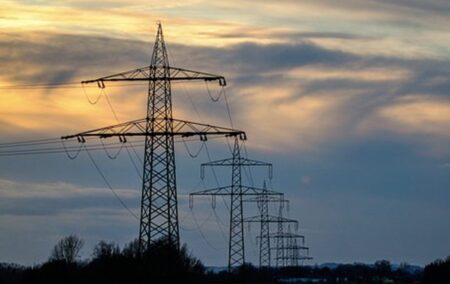In the darkening gloom over Eskom and South Africa’s electricity supply comes some rays of light. Eskom’s new CEO, Andre de Ruyter has got off to a good start. The Minister of Minerals and Energy, Gwede Mantashe, has allowed the mines to generate electricity for their own use. There are sensible proposals.
De Ruyter has probably stepped into the worst job in South Africa – and the most important. The ruin of Eskom, a once fine electricity utility, by the ANC is one of the most damaging events in our recent economic history, and unless Eskom is rescued our economy is doomed. De Ruyter’s opening remarks from his new office inspired confidence by their modesty. He’s not offering a magic pill to cure all Eskom’s illnesses. He’s not promising an end to load shedding. He’s not going to wave a wand and by magic solve all of Eskom’s problems by unbundling/privatisation/renewables or any other easy trick.
He said he is going to embark on a proper maintenance program (“maintenance philosophy”) for Eskom’s failing coal stations. This is an obvious remedy – but that doesn’t stop its being necessary and urgent. Because we didn’t build stations in the 1990s, when we were running out of electricity, the existing stations were run into the ground to “keep the lights on” and are now falling to pieces. It would have been better to turn the lights off on a regular, planned basis to allow proper maintenance. This is just what he proposes. So there will be years of load shedding but the stations will be fixed as far as it that is possible.
He announced he has no plans to bring in outside “management consultants” or “experts”. Hurray! Since coming to power in 1994, the ANC has wasted an enormous amount of our money by kicking out skilled in-house white engineers and managers, replacing them with unskilled blacks, and then hiring outside consultants at double the salary of the old whites to do their jobs. (This helps black managers get huge bonuses for meeting their equity targets but cripples their enterprises.) It is true that Eskom has lost many skills but it still has enough to solve its problems if they are allowed to do so.
Actually most of Eskom’s problems are not technical but political. Its once excellent coal supply consisted of big coal mines run by the mining majors (‘white monopoly capital!”) providing the power stations next to them with cheap, consistent coal delivered on a conveyor belt. The ANC changed the coal procurement to crony BEE coal suppliers, running small mines far away from the power stations, delivering expensive, inconsistent coal by road truck, wrecking the environment as well as wrecking Eskom. Has De Ruyter the political clout to end this abuse? We shall see. And we need new stations but these must be chosen on rational economic and environmental grounds and not according to the dreadful IRP (Integrated Resources Plan).
At this week’s mining indaba in Cape Town, Minister Mantashe announced that mines will be allowed to generate electricity for their own use. This announcement is rather strange, since paper mills, sugar mills and Sasol plants, already generate electricity for their own use, but it is welcome nonetheless. Any company should be allowed to generate its own electricity.
Mantashe should go further. He should allow any private generator to provide electricity to anybody he pleases, including any private consumer, any municipality and even the national grid, providing only that he meets electricity regulations and sells into a competitive market. At the moment, no such thing is happening. At the moment, Eskom is forced to buy very bad electricity from IPPs (Independent Power Producers) at extortionately high prices. “Renewable” energy (which here means wind and solar) is very expensive for grid electricity all over the world.
Socialists say the state runs the economy best. The facts show them wrong. Overwhelmingly socialism has failed, ruining economies such as the USSR, Mao’s China, North Korea, Venezuela and Cuba. Capitalists say the private sector is best. Since I believe in the free market, I agree with them – but only 90% of the time. A rare example of where the state can be more efficient that the private sector is electricity supply. This is because electricity supply is capital intensive and the cost of capital for the state is always lower than for the private sector. Moreover, the state is content with a small return and a long payback period. This is why Eskom provided the world’s cheapest electricity until about 1994.
Privatisation is not a magic pill for Eskom. Nor is “unbundling”, which I was happy to see De Ruyter acknowledge, although it could have benefits. Nor, heaven forbid, are renewables. All Eskom can do, as De Rutter seems to acknowledge, is to proceed sensibly and cautiously, bringing gradual improvements, using rational judgement, forsaking miracles.
The views of the writer are not necessarily the views of the Daily Friend or the IRR
If you like what you have just read, become a Friend of the IRR if you aren’t already one by SMSing your name to 32823 or clicking here. Each SMS costs R1. Terms & Conditions Apply.

